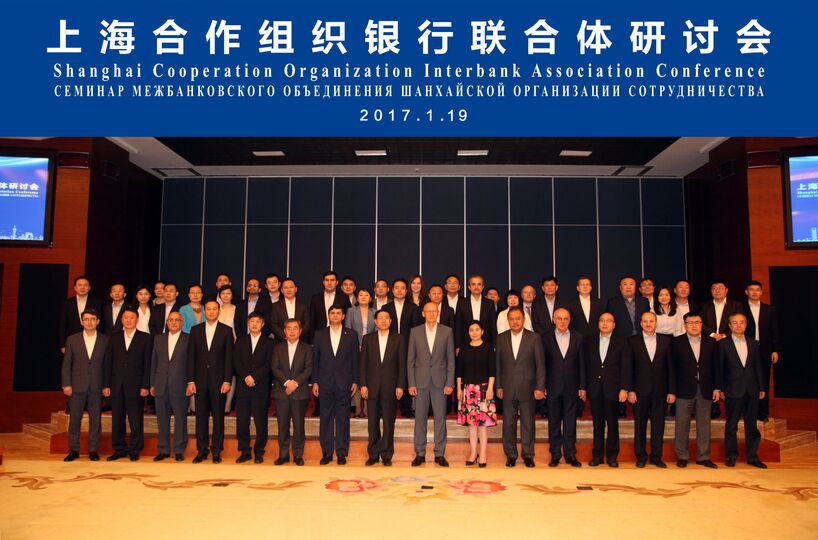On 19-20 January 2017, the Interbank Consortium of the Shanghai Cooperation Organisation held its eighth thematic seminar: "The Silk Road Economic Belt: Financial Innovation and Interconnected Development," in Sanya, China.
The event was attended by heads of member banks and dialogue partner banks, the SCO Secretariat, the Asian Infrastructure Investment Bank, the BRICS New Development Bank and China's Silk Road Fund. The participants exchanged views on the Association's development and on the most effective means of financial cooperation, and noted the special role of national development banks in supporting sustainable growth and social stability.
President of the China Development Bank (CDB) Zheng Zhijie delivered a report, presenting a profound analysis of the current financial and economic situation and prospects for its development in China and worldwide. Mr Zheng spoke about the China Development Bank's main efforts to strengthen cooperation in financial innovation in the framework of the SCO Interbank Consortium, and put forward proposals regarding the Consortium members' interaction in this area, namely: innovative mechanisms for cooperation and development of interconnected relationships between the government, companies and financial institutions; deepening of the existing forms of financial institutions' cooperation and searching for new ones; new financing models and expanded fundraising channels; innovation in the lending system and stronger risk management.
In his speech, Deputy Secretary General of the SCO Aziz Nosirov noted that "the Interbank Consortium is an important public institution of the SCO, which makes a significant contribution to strengthening financial cooperation and promoting trade and economic cooperation between the member states. All the members have praised the major infrastructure projects implemented through the Interbank Consortium as well as projects to develop small and medium-sized businesses."
He briefed the participants on the results of the anniversary SCO Summit in Tashkent and the SCO Heads of Government Council Meeting in Bishkek in 2016. "The Action Plan for 2016-2020 for the implementation of the SCO Development Strategy towards 2025, as well as the list of activities on Further Development of Joint Projects in the SCO framework for 2017-2021, are programme documents and envisage the creation of a supportive environment within the SCO framework for sustainable growth of trade and investment cooperation, development and implementation of joint infrastructure projects, and the strengthening of business cooperation with the SCO Interbank Consortium and SCO Business Council," Mr Nosirov said.
During their meeting on the sidelines of the event, Mr Nosirov and Mr Zheng exchanged views on the outcome of the seminar, as well as on further cooperation between the SCO Secretariat and the SCO Interbank Consortium on current issues on the SCO agenda.
The SCO Interbank Consortium was established in accordance with the Agreement on Interbank Cooperation (Consortium) within the SCO framework of 26 October 2005 as a mechanism of funding and banking servicing of investment projects supported by the governments of the SCO member states.
The members of the SCO IBC are the Development Bank of Kazakhstan, the State Development Bank of China, the Settlement & Savings Company of the Kyrgyz Republic (RSK Bank), the Russian Bank for Development and Foreign Economic Affairs (Vnesheconombank), the State Savings Bank of the Republic of Tajikistan (Amonatbonk) and the National Bank for Foreign Economic Activity of the Republic of Uzbekistan.
The SCO IBC partner banks include Joint Stock Savings Bank "Belarusbank", Habib Bank Limited (Pakistan) and the Development Bank of Mongolia.
SCO IBC holds annual seminars in Sanya (China) since 2010 to exchange views on the financial and economic situation in the region and discuss prospects for the Consortium's development.
